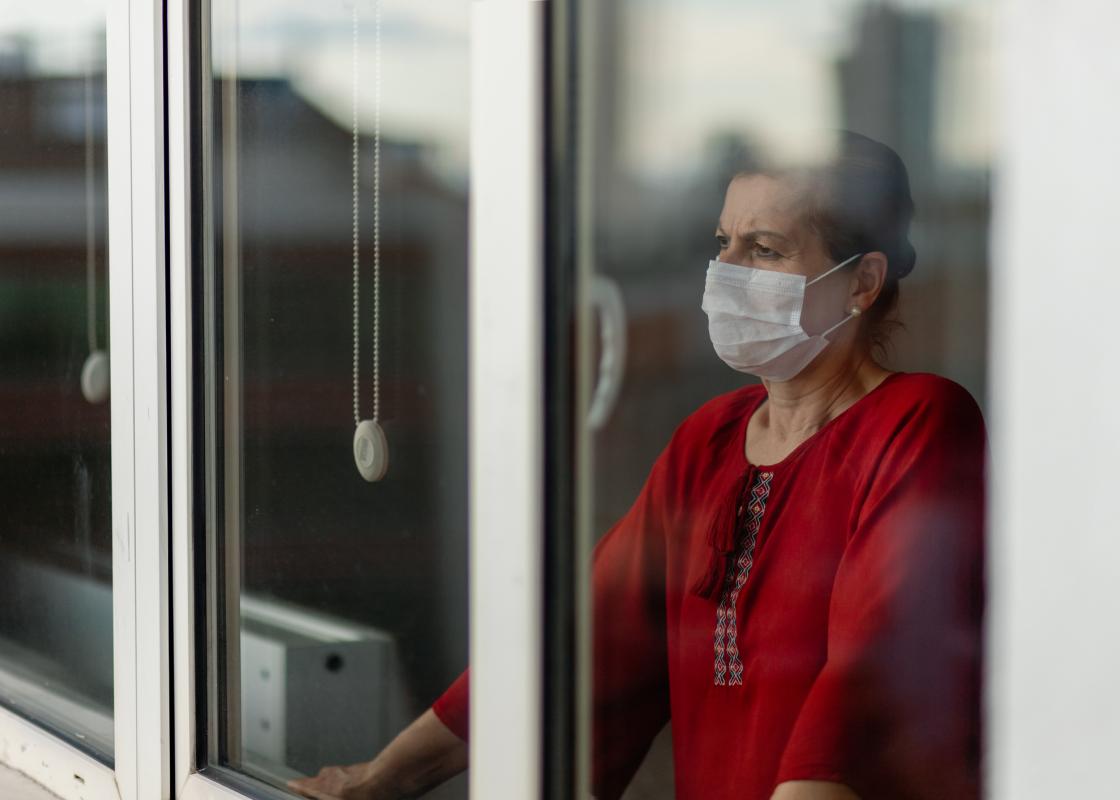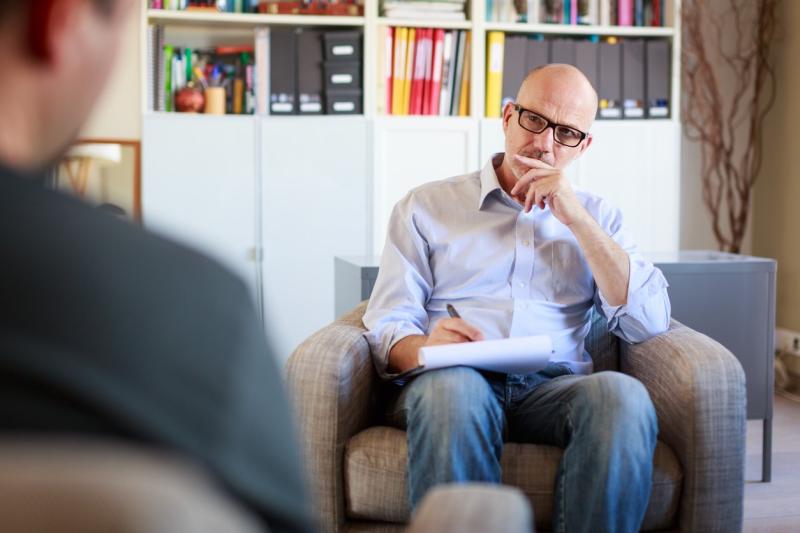When the corona pandemic hit Norway, the entire country closed down in one day. Schools and kindergartens shut their doors, companies temporarily dismissed their employees, and most people were strictly told to stay at home. A new survey from Kilden genderresearch.no, commissioned by Bufdir – The Norwegian Directorate for Children, Youth and Family Affairs, examines what consequences this may have had for violence toward women.
“When the population is stressed due to dismissals and restricted freedom of movement, and the support system is subjected to restrictions and become harder to reach, it may certainly lead to increased violence,” says Mari Trommald.
She is director of Bufdir – The Norwegian Directorate for Children, Youth and Family Affairs. They are responsible for communicating the survey’s findings to the Ministry of Culture.
A crisis out of the ordinary
“This is a crisis out of the ordinary, which will have long-term consequences for everything from work and economy to domestic violence. It is therefore important to obtain more information about how it will affect society,” says Trommald.
In her opinion, when it comes to violence toward women and consequences for equality more generally, we should not necessarily look at problems connected with infection, but rather the negative effects of the lockdown.
Our study shows a decrease in the number of people who have sought support from the women’s shelters.

“I think that many understand that if they do not keep good distance they may infect their grandmother. Now we must also make people aware of the fact that a new lockdown will affect the entire society once more. It is therefore essential that we follow the infection control regulations.”
Need for increased emergency preparedness
The authorities told the Norwegian population to avoid contact with the health services unless strictly necessary, in order not to overstrain the health care system. The survey shows that this may have caused women who are victims of domestic violence to avoid contact with women’s shelters and other support services such as the police.
The survey concludes that there is a need for the following measures:
- Increased emergency preparedness and coordination at the system level with regards to domestic violence
- That more municipalities develop action plans against domestic violence
- That the authorities find better ways to reach those who are victims of violence during the pandemic
Worried about fewer enquiries
One of few existing reports about the consequences of the corona restrictions on violence toward women in Norway is the women’s shelter report from Norwegian Centre for Violence and Traumatic Stress Studies (NKVTS).
“Our study indicates a decrease in the number of people who have sought help from the women’s shelters. Some also report concerns that the situation may have created new opportunities for exerting control and psychological violence in the family,” says researcher Margunn Bjørnholt.
She says that they do not know the reason for the decrease, but it may be that people held their breath during the most severe lockdown and therefore did not seek help.
“There are also many places in Norway where the distances to service facilities are enormous. If public transport is not available and the distance to the nearest women’s shelter is 500 kilometres, it is very hard for someone who lives with domestic violence to seek help.”
An important finding in the study was that the women’s shelters seemed well equipped for handling the corona crisis. They had both the capacity and a plan for helping the victims of violence.
It is well documented in research that crises of various forms lead to increase in domestic violence and relationships.
“Therefore, they were worried about the decrease in the number of enquiries, particularly among victims of violence with minority background or drug addiction,” Bjørnholt emphasises.
May cause increased domestic violence

International warnings about how the crisis might cause increased violence toward women came early on in the pandemic. EU Agency for Fundamental Rights announced that police, women’s shelters and non-governmental organisations reported an increase in domestic violence, particularly toward women.
“It is well documented in research that crises of various forms lead to an increase in domestic violence and relationships. For instance, we saw this in several countries after the financial crisis and after natural disasters and in wars and conflicts,” says Bjørnholt.
Bjørnholt explains that the United Kingdom has reported an increase in the number of partner homicides following the outbreak of the corona pandemic.
“The corona crisis represented a new situation, but the violence is not new, and the authorities’ responsibility to fight the violence is the same as before. It is therefore important to take the support system’s concerns seriously and examine them closely in our research.”
“Much has been done to ensure that the services are known”
It is essential to make sure that the support services are known in society and that we work to ensure that the barriers for seeking help from these services are broken, according to Mari Trommald from Bufdir.
Much has been done to ensure that the services are known about and open.
“An important measure from the government is that they have defined the women’s shelters as a function that is critical for society, and they have thus received more attention in the preparedness.”
“The survey concludes, however, that the communication concerning support services has been insufficient. Do you agree?”
“We have an own department that is responsible for following up the women’s shelters’ services. They have been in direct contact with county governors and all the women’s shelters in order to ensure that the services are open. In a lockdown period, the staff at the shelters may also feel unsafe due to the risk of infection. It is therefore important to ensure safe workplaces in such times,” says Trommald, and continues:
“Much has been done to ensure that the services are known and open. We have encouraged the shelters to be active in both the local and the social media, and we have made sure that information is available in several languages that the services are safe to use. Others will have to answer whether this is sufficient or not.”
“What are your further recommendations to the Ministry of Culture?”
“That is exempt from public disclosure. But I can reveal that we have emphasised that it is absolutely crucial with more knowledge about the consequences in the field of equality. That will make it easier to point the government’s measures the right direction.”
More digital violence when we are at home
The corona crisis also resulted in a sudden and extensive digitalisation on many areas. Previous research shows that many women are already victims of digital violence, through sexual harassment, stalking, unwanted image sharing, coercion and extortion.

“As of today, we do not have empirical grounds to claim that the scope of digital violence has increased with the corona crisis, but there are certain indications of that. Our focus has
been that children and youth are particularly exposed over the internet, and we have seen several notes of concern from the police and various organisations,” says Per Moum Hellevik. He is also a researcher at NKVTS, and has worked specifically with digital violence.
He explains that the increased digitalisation of the work situation and increased isolation lead to more online activity, which consequently increases the potential for conflict in homes that are already turbulent.
“We know from research that what goes on face-to-face and what goes on digitally are often connected. If strict corona measures lead to increased conflict and women’s exposedness offline, it is possible that the same happens online.”
According to Hellevik, the communication from the authorities may have been inadequate on several areas, but it is difficult to be too critical since they are facing major challenges.
“But we have now gone through the first round and learned a lot, so in the time to come it is important that we become more aware of several challenges connected to corona, including domestic violence.”
Minority women particularly vulnerable
Another topic that Kilden’s survey draws attention to is that women with minority background may be particularly vulnerable to the consequences of the corona crisis. Although there is little research on violence toward minority women during and after the pandemic, we know that women and children with immigrant background are overrepresented in the women’s shelters.
It is important for us to have contingency plans that protect the immigrant population in Norway, also in times of emergency.
The Directorate of Integration and Diversity (IMDi) is subjected to the government’s integration policy. Director Libe Rieber-Mohn writes in an email that IMDi’s experience from the lockdown last spring indicates that the most important measure in order to reach vulnerable groups in society is to retain contact with the public support services.

“For instance, this means that we must be careful when it comes to shutting down services such as schools and kindergartens. When people sit at home instead of being in touch with the world outside, it becomes much more difficult to get in contact with people and help those who need it. Having said that, it is of course important to make use of all available channels once the lockdown has become a fact,” she writes.
Negative social control and honour-related violence affect the minority groups that IMDi works with, and they do not pause during a pandemic, Rieber-Mohn continues.
“It is important for us to have contingency plans that protect the immigrant population in Norway, also in times of emergency. IMDi has been given a coordinating role in the work with information and measures for the minority population in connection to COVID-19, and
will come back with our final recommendations in our concluding report to the Ministry of Education and Research.”
Kilden genderresearch.no, who has written the survey mentioned in this article, is a national centre of knowledge for gender perspectives and gender balance in research. The news magazine is independent and follows the Norwegian Editorial Poster, Ethical Code of Practice for the Press and is a member of the Specialist Press.
Translated by Cathinka Dahl Hambro.
● The communication from the authorities has been insufficient, and the information that has been given has probably not reached enough of those for which it was intended.
● All binding national contingency plans should address domestic violence.
● The municipalities need to become more aware that the women’s shelters are their responsibility. The authorities should call for action plans concerning domestic violence and address how the work to combat domestic violence is coordinated and implemented locally in the individual municipalities.
● The authorities should be more precise in their description of which societal functions they define as critical for society, which functions need to remain open and who should be given personal protective equipment.
● There is need for a coordination group that can gather information from involved bodies and report back to the authorities.
● There is need for a communication plan that can strengthen the population’s knowledge about which support services that are open and how they may seek help and support from these services



